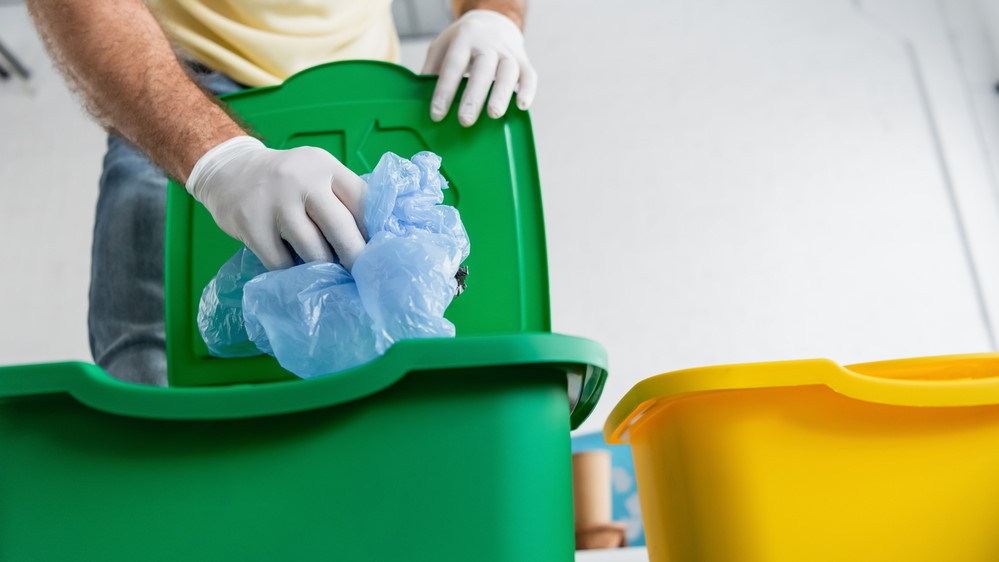European Packaging and Packaging Waste Regulation drives composting as a real alternative

The future European Packaging Regulation, about to be approved, introduces significant changes in the area of compostability. Article 8 devotes special attention to this issue, setting a deadline of 24 months after its entry into force for everyday products such as coffee pods in filter paper, adhesive labels on fruit and vegetables and very light plastic bags to be fully compostable under controlled industrial conditions.
Below, we break down this and other important issues that this new regulation will bring to the packaging regulatory landscape.
- What is the real meaning of “compostable”?
- Harmonized symbols for labeling and reduction of light bags
- Packaging market: towards harmonization and conformity assessment
1. What is the real meaning of “compostable”?
The regulation defines the conditions that a package must meet to be considered compostable. These include the ability to undergo physical, chemical, thermal or biological decomposition, most of which is transformed into carbon dioxide, mineral salts, biomass and water. In addition, it should not interfere with separate collection or the industrial composting process.
Also, in view of the possibility of cross-contamination between conventional and compostable plastics affecting the bio-waste and recycling streams, the new regulation establishes specific regulations for the use of compostable plastic packaging. Their use is prioritized when they contribute to the efficient collection or disposal of bio-waste.
2. Keys to a more sustainable future: harmonized symbols in labeling and reduction of plastic bags
The future European Packaging Regulation proposes the creation of a system of harmonized symbols for packaging and waste containers, including compostable and biodegradable ones. This initiative seeks to improve consumer understanding, facilitating the correct classification and subsequent recycling of packaging.
The future regulation also promotes the industrial compostability of very lightweight plastic bags. In addition, where there are adequate systems for organic waste management, Member States will be able to require that lightweight plastic bags are only sold if they are compostable.
In addition, the regulation seeks a sustained reduction in their consumption, in fact, it includes national reduction targets, economic instruments and marketing restrictions, provided they are proportionate and non-discriminatory.
In particular, Article 29 states that the annual consumption of lightweight plastic bags must not exceed 40 bags per person by December 31, 2025. Member States may exclude from this obligation bags needed for hygiene reasons or as bulk food packaging to avoid waste.
3. A more sustainable packaging market: towards harmonization and conformity assessment
In order to boost the sustainability of the packaging sector in the internal market, the European Union intends to harmonize requirements for compostability, reduction and reuse.
To simplify the marketing process and ensure consumer safety, a presumption of conformity is established for packaging that complies with the harmonized standards.
In addition, in order to safeguard the objective of the new regulation, the Commission has reserved the right to amend certain aspects of the regulation in the light of technological and regulatory developments related to the disposal of compostable packaging.

Our laboratory offers testing services to determine the compliance of materials and packaging with these standards, providing full reports to support industrial or national certification according to the main international certifications: TÜV Austria, DIN CERTCO, BPI, European Bioplastics, ABA (Australasian Bioplastics Association) and REAL (Compostable Materia ls Certification Scheme).
In addition, ITENE became in 2019 the first center in Spain accredited by ENAC to perform compostability tests in all four phases based on the UNE-EN 13432 standard. With the test reports issued by ITENE, customers gain access to eleven certification schemes with which we work.
At a time when compostability is emerging as a priority for the packaging industry, ITENE emerges as a specialized ally, offering comprehensive solutions to overcome regulatory challenges effectively.
-
¿Hablamos?
Jordi Palau
Responsable de Compostabilidad
"*" indicates required fields
